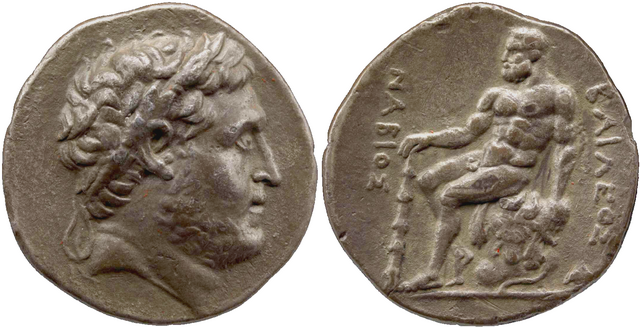Nabis of Sparta is a figure often overlooked in the grand narratives of ancient Greek history, yet his reign marks a significant, albeit controversial, chapter in the story of Sparta. Ascending to power during a time of decline and instability, Nabis ruled from 207 to 192 BCE, a period when Sparta was no longer the formidable force it once was. His time as leader was marked by bold reforms, military campaigns, and a relentless effort to restore Spartan strength, making him one of the most intriguing, though polarizing, figures in Spartan history.
Nabis did not come to power through traditional means. He was not born into the royal family but rose to prominence through a coup, seizing control of Sparta at a time when the city-state was grappling with internal decay and external threats. His unconventional rise was indicative of the desperate times Sparta faced, and it quickly set the tone for a reign that would be anything but traditional. Nabis’s rule was marked by a series of radical reforms aimed at revitalizing Sparta’s waning power and addressing the deep social inequalities that had emerged over the centuries.
One of Nabis’s most significant and contentious policies was his land redistribution program. Sparta, once known for its strict social structure and the equality of its citizens, had seen growing disparities between the wealthy elite and the poorer classes. Nabis sought to address this by confiscating land from the wealthy and redistributing it to the poorer citizens and even to non-citizens, an unprecedented move in Spartan society. This policy was designed to strengthen the military by increasing the number of men who could afford to equip themselves as hoplites, thus bolstering Sparta’s military ranks. However, it also alienated the traditional Spartan elite, who saw Nabis as a tyrant undermining the very fabric of Spartan society.
Nabis also reformed the Spartan military, recognizing that the city-state could no longer rely solely on its citizen-soldiers. He expanded the use of mercenaries, integrating them into the Spartan army to adapt to the new realities of Hellenistic warfare. These mercenaries, often viewed with suspicion by traditional Spartans, became an essential part of Nabis’s strategy to defend and expand Spartan influence. Nabis’s military campaigns were aggressive and ambitious, as he sought to reclaim territories that had been lost and assert Sparta’s dominance in the Peloponnese. However, these campaigns often brought him into conflict with more powerful forces, particularly Rome, which was increasingly asserting its influence over Greece.
Nabis’s interactions with Rome would prove to be a defining aspect of his reign. The Roman Republic, wary of Nabis’s ambitions and his potential to disrupt their plans for Greece, viewed him with suspicion. Nabis attempted to navigate this tension by forging alliances and engaging in diplomacy, but his efforts were ultimately in vain. In 195 BCE, the Roman general Titus Quinctius Flamininus led a coalition against Nabis, forcing him to capitulate and significantly reducing Spartan territory and power. This defeat marked the beginning of the end for Nabis’s rule and for Sparta’s independence.
Despite his efforts to maintain control, Nabis’s reign ended abruptly in 192 BCE when he was assassinated, likely by those within Sparta who opposed his reforms and resented his unconventional rule. His death plunged Sparta into further decline, and the city-state, once the dominant power in Greece, gradually faded into obscurity. Nabis’s legacy is a complicated one. To some, he was a reformer who attempted to revitalize a declining state and address deep-seated social inequalities. To others, he was a tyrant who disrupted the traditional order of Spartan society and led the city-state into further ruin.
Nabis of Sparta remains a figure of both fascination and debate. His reign was a period of intense change, marked by bold decisions that sought to address the challenges of a declining Sparta. Whether viewed as a hero or a villain, Nabis’s actions had a profound impact on the final chapter of Spartan history. His story serves as a reminder of the complexities of leadership, particularly in times of crisis, and the delicate balance between innovation and tradition.

